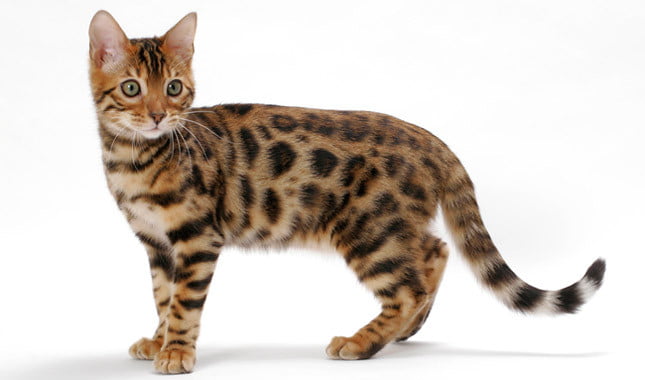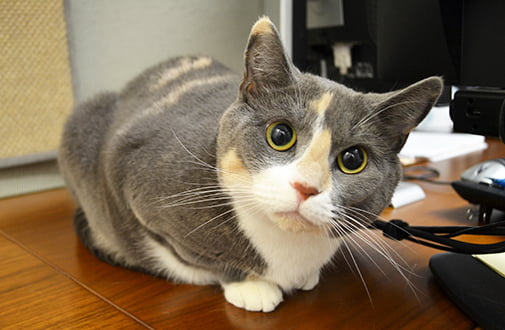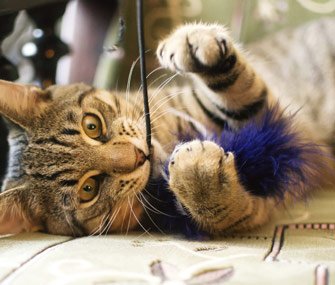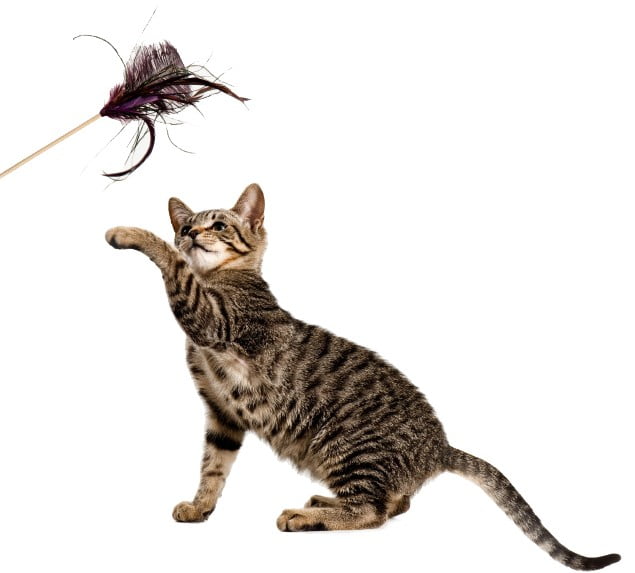Do you have trouble relating to cats? Do you find them aloof and un-trainable? If so, don’t feel bad. Felines are beautiful, wonderful, mysterious creatures. Even as a professional pet sitter, I struggle far more in striving to understand cat psychology and behavior than I do dogs. I firmly believe cats are highly intelligent animals. It is within that intelligence that the complexity of their behavior lies and that can be so bewildering to many of us. Here are six things people have in common with our feline counterparts.
Learning
Humans and cats learn the same way especially as it pertains to rewarding positive behavior. Both children and adults tend to repeat good behavior that is rewarded. Cats learn best in this manner as well. Also like people, cats tend to respond better to positive reinforcement than negative. Physical punishment, intimidation and inconsistency teach cats to be fearful which can in turn damage their bond with both humans and other animals alike. Such outcomes are similar with people when negative methods are employed.
Companionship and Affection
Cats tend to get stereotyped as solitary creatures. In reality, they are very social animals. In fact, one could argue that cats behave more like humans than dogs. It is not that all dogs are the same, but face it, dogs by their very nature tend to be a very extroverted species. Some people are shy, quiet, sedentary and not touchy-feely. Others are boisterous, loud, active and love physical contact like hugging. Sound like any cats you know? Just because a cat won’t sit in your lap or doesn’t enjoy being pet, does not mean it does not crave companionship.
Choice
As human beings, we want choice in our lives and do not appreciate being backed into a corner. Cats feel that as well. Training becomes more successful when you offer your cat a choice. If for example, you don’t want your cat on the kitchen counter, try offering an alternate elevated location as opposed to simply pushing them off the counter. Just like with people, cats feel less threatened when given a choice. Providing a choice also tends to increase trust.
Enrichment
When people lack enrichment, we can become bored, lonely or depressed. That’s why we seek to enrich our lives with hobbies and doing things we enjoy like reading, movies, music, sports and spending time with friends. Just like us, cats benefit from enrichment as well. Cats can suffer the same kind of stress and health related issues as humans when deprived of life enriching elements including playtime, good nutrition, a healthy environment, security, veterinary care and companionship. Without enrichment people and cats alike struggle to survive. With enrichment, we all thrive.
Comfort in Familiarity
People typically are very averse to change. Most of us really don’t like it. The same can be said of cats. You may find that hard to believe especially if you compare cats to dogs. Cats are chill and could care less about what goes on around them, right? Wrong. I used to make the mistake of thinking that cats were not as routine oriented or prone to suffer anxiety as their canine counterparts because they are normally much more stoic than dogs who have no trouble displaying their discomfort in a number of behavioral ways. Cats, like dogs, also get use to routines and get just as stressed out (perhaps even more so) when those routines are changed. Felines however, simply hold all their stress, fear and anxiety inside which when you think about it, is not very healthy.
Love Playing
One of the ways people enrich their lives is through play. As people, we love to play whether it is sports, board games, video games or just sharing time with one another. Playtime is physiologically beneficial to us as it releases the neurotransmitter dopamine which is connected to feeling good. During playtime for a cat, the same dopamine neurotransmitter is released. For cats, playtime often involves the mock hunting of and pouncing on a fake furry mouse or toy. Playtime can also include a toy, ball or feather on the end of a wand being dangled by the pet parent. This engagement in pure fun is not only physically, mentally and emotionally beneficial to the cat, but also helps to relieve stress, gain confidence and bond with others.
This article was adapted from a story in Signature by Pam Johnson-Bennett titled “6 Surprising Things People Have in Common with Cats.”





